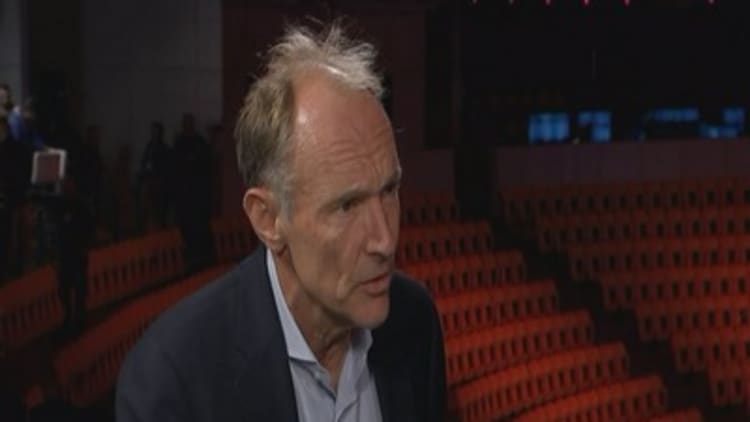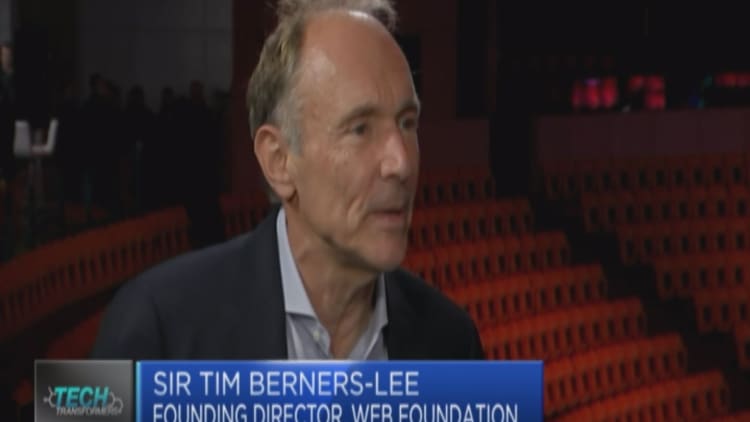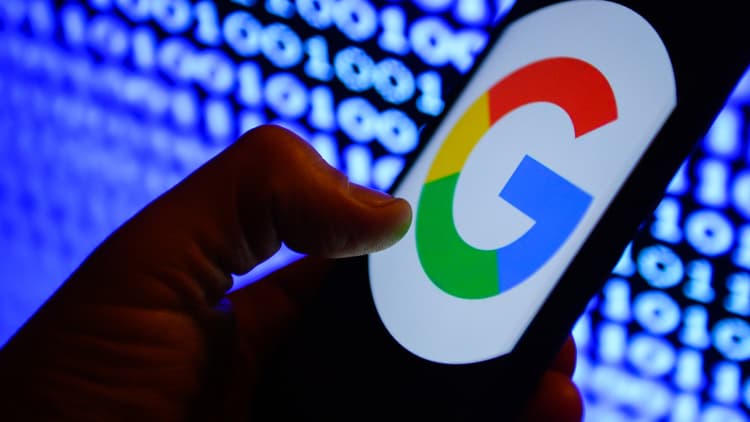
The internet today isn't what Tim Berners-Lee pictured when he invented the World Wide Web nearly three decades ago.
Speaking to CNBC at the Web Summit tech conference in Lisbon Monday, Berners-Lee said the web is "at a tipping point" as it faces threats like market concentration, data breaches and so-called "fake news."
"For a long time, 20 years, I thought all I had to do was keep it, just keep it free and open and people will do wonderful things," Berners-Lee told CNBC's Karen Tso. "Then in fact if you look and talk to people on the street now there's been a big change. I think this has been been a tipping point."
If you'd asked me 10 years ago, I would have said humanity is going to do a good job with this. If we connect all these people together, they are such wonderful people they will get along. I was wrong.Tim Berners-Leeinventor of the World Wide Web
The London-born computer scientist said the web is no longer the open, constructive platform he envisioned when he invented it 29 years ago. He rattled off a long list of concerns, such as user frustration with ads and privacy, hate speech and fake news. Last week he told Reuters that tech giants like Google and Facebook may have to be broken up citing "danger of concentration."

"If you'd asked me 10 years ago, I would have said humanity is going to do a good job with this," he said. "If we connect all these people together, they are such wonderful people they will get along. I was wrong."
Governments, companies and citizens all have a role to play in setting the web back on its original course, Berners-Lee said. His World Wide Web Foundation unveiled a "Contract for the Web" on Monday outlining principles to protect the internet as a basic right for everyone.
Facebook and Google are already backing the contract, though it's unclear what effect, if any, it will have on the companies. Nonprofits and government representatives, like the French secretary of state of digital affairs, have also signed on.
"The web is for everybody, and so if the web is for everyone the contract has got to be for everyone," Berners-Lee said.
One key pillar of this initiative is that companies respect consumers' privacy and personal data. Facebook in particular has been under scrutiny after a series of data breaches exposing millions of users' personal information.
Despite recent legislation like Europe's General Data Protection Regulation, the World Wide Web Foundation estimates 1.5 billion currently people live in a country with no comprehensive law on personal data protection. The contract requires governments to treat privacy as a fundamental human right, an idea increasingly backed by big tech leaders like Apple CEO Tim Cook and Microsoft CEO Satya Nadella.

The contract also demands governments keep all of the internet available, all of the time. In a report released along with the contract, the World Wide Web Foundation urged governments to protect net neutrality and ensure all traffic online is treated equality.
"A neutral internet is at the heart of the web's founding and its subsequent success and popularity," the report said.
Billions still offline
Today there are nearly 2 billion websites, one for nearly every four people in the world. But internet accessibility remains a major hurdle. More than half of the global population, or nearly 4 billion people, remain offline, according the World Wide Web Foundation report. The rate at which people are connecting to the web is slowing, particularly among women.
"We are at a pivotal moment in the web's history, and need to ensure we take steps to close the digital divide and reverse the trend of slowing growth," the report said.






